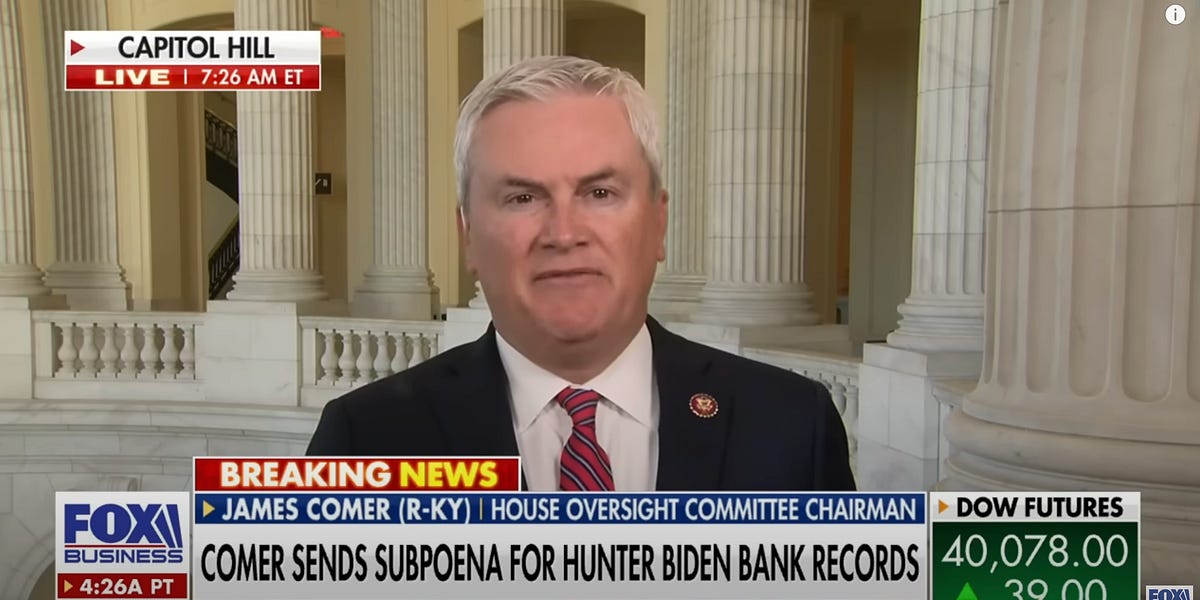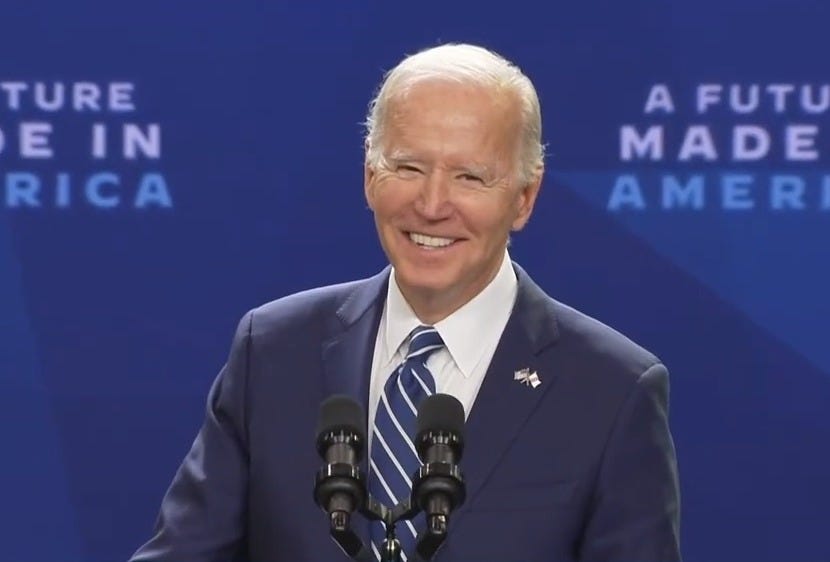Republican presidential candidate and part-time Florida Gov. Ron DeSantis pulled a truly genius move earlier this month when he used his line-item veto power to reject a couple of smallish federal grants that would have provided $29 million to Florida’s budget, presumably because federal money is bad and who needs Washington, yay fiscal conservatism! He wasn’t about to let Florida be oppressed by that relative pittance from Joe Biden’s woke big spending agenda, so the hell with it.
DeSantis may or may not have been aware, however, that rejecting one of the block grants — for $5 million — actually led to Florida’s withdrawal from a federal program that would have provided another $346 million to provide tax rebates to Florida residents who upgraded to energy efficient appliances, smart thermostats, and the like.
What’s not clear yet is whether he was ignorant of those consequences, or knew exactly what he was doing and was willing to prevent Floridians from getting in on energy-saving home upgrades for the sake of pretending he’s fighting woke green policy or something. When he signed off on the state budget on June 15, DeSantis didn’t mention any of the $510 million in items he vetoed, much less those two line items, so we’ll assume he didn’t know. After all, when he’s deliberately being a dick, he tends to make noise about it.
The Capitolist notes that DeSantis’s office didn’t respond to its inquiries about the line item vetoes, so
it’s not clear if the governor was aware of the cascading impact of his decision. But political insiders view it as a calculated strategy meant to bolster his presidential campaign and take away a Biden Administration talking point highlighting DeSantis’s previous acceptance of federal dollars for other programs.
The two block grants DeSantis tossed out of the state budget, line items 1463A and 1463B, wouldn’t have obligated any new spending from Florida’s state funds. Item 1463A was a $24 million grant that would have used funding from the 2021 Bipartisan Infrastructure Law to “upgrade rural wastewater motors and improve the efficiency [of] pumping infrastructure in smaller counties across the state,” and we were today years old when we learned that there’s something called “wastewater motors.” Makes sense you’d want them to be efficient, or if you’re Florida, not.
But the real dumbshit move was vetoing the other line item, 1463B,
a seemingly innocuous $5 million grant through the Federal Inflation Reduction Act, intended to set up required planning and accountability infrastructure for a larger tranche of federal cash aimed at improving energy efficiency across all 50 states. To qualify for the larger block of funds, states were expected to set up the accountability programs first. But the veto set off a chain reaction, killing off Florida’s efforts to meet the federal requirements, which in turn effectively disqualified Florida from receiving two larger federal block grants, each worth $173 million, or $346 million in all.
As The Capitolist notes, accepting the funding for planning wouldn’t have required Florida to create any new bureaucracies, since it would have gone to the already existing Florida Department of Energy, which weirdly is under the purview of the state Agriculture Commissioner. The department, Capitolist learned, had already been planning for the $346 million to go into “consumer-oriented programs including homeowner rebates for investments in smart-home thermostats and energy efficient appliances,” and what a nice incentive that would have been. Then again, it being Florida, maybe the funds would have been channeled into a program to rip electric appliances out of condos and replace them with gas stoves. Yes, even if they were originally refrigerators.
If DeSantis’s intent was to give the finger to clean energy incentives and Joe Biden’s Green New Wokeness, that may not have worked so great, either, because
As a result of the vetoes, federal dollars paid by Floridians will likely be distributed to other states, potentially opening up DeSantis to criticism that his refusal of the funding not only hurts Floridians, but allows more progressive governors to use Florida’s money to promote more progressive energy initiatives.
We’re sure California Gov. Gavin Newsom will send DeSantis a nice thank you note for that.
Whatever DeSantis’s motives — performative dickishness is always a safe baseline assumption — his efforts to sidestep any mention of climate change aren’t likely to play well beyond his rightwing base. (For that matter, even wingnuts like saving money on utility bills.) And no matter what he may say, Ron DeSantis knows climate change is real; remember, he has an entire program aimed at mitigating “sea level rise and flooding” in Florida, even if he won’t say out loud the reason that infrastructure needs to be made resilient.
Read More! Ron DeSantis Too Busy Spending $$$ On ‘Sea Level Rise’ To Think About Commie ‘Climate Change’
One thing Democrats should make lots of noise about going into 2024 — at every level, not just presidential politics — is the consistent popularity of policies aimed at fighting global warming and promoting clean energy. One big problem, as a new study shows, is that while about two-thirds of Americans are concerned about climate change and support policies to reduce carbon emissions, most of us don’t realize how many other Americans agree with us.
“What we found is that the vast majority of Americans underestimate just how many of their fellow Americans support these transformative climate policies, like a carbon tax or a Green New Deal, or a 100% renewable energy mandate,” says Gregg Sparkman, an assistant professor in the department of psychology and neuroscience at Boston College.
In a study published in Nature Communications last year, Sparkman’s research team asked 6,000 Americans to estimate the percentage of other Americans who are concerned about climate and support “major climate change mitigation policies.” The results reflect just how successful the far Right has been in spreading fear and disinformation on climate, which the researchers call a “false social reality: a near universal perception of public opinion that is the opposite of true public sentiment.” In fact, 80 to 90 percent of the respondents badly underestimated support for climate action.
While 66–80% Americans support these policies, Americans estimate the prevalence to only be between 37–43% on average. Thus, supporters of climate policies outnumber opponents two to one, while Americans falsely perceive nearly the opposite to be true
That misperception held up in every state and across various demographics, which makes mobilizing support for action more difficult, as Sparkman points out:
This misperception matters. When people feel alone in their views, they are less likely to take action. So he says it’s important to start conversations about climate change — “to voice your concerns about climate change to others, to talk about climate policies that you think are exciting: These kinds of conversations, when done en masse, will help correct this misperception,” Sparkman says.
Frankly, this should be an opportunity for supporters of climate action: The outright deniers are in reality a small but very noisy (and in politics, well-funded) minority, so we shouldn’t waste time arguing with them (even if it’s fun). Instead, we should be shouting from the rooftops that we are already the damn majority, and we should start acting like it.
[Capitolist / WLRN / Yale Climate Connections / Photo: Gage Skidmore, Creative Commons License 2.0]
Yr Wonkette is funded entirely by reader donations. If you can, please give $5 or $10 a month to help us get the word out!








































































